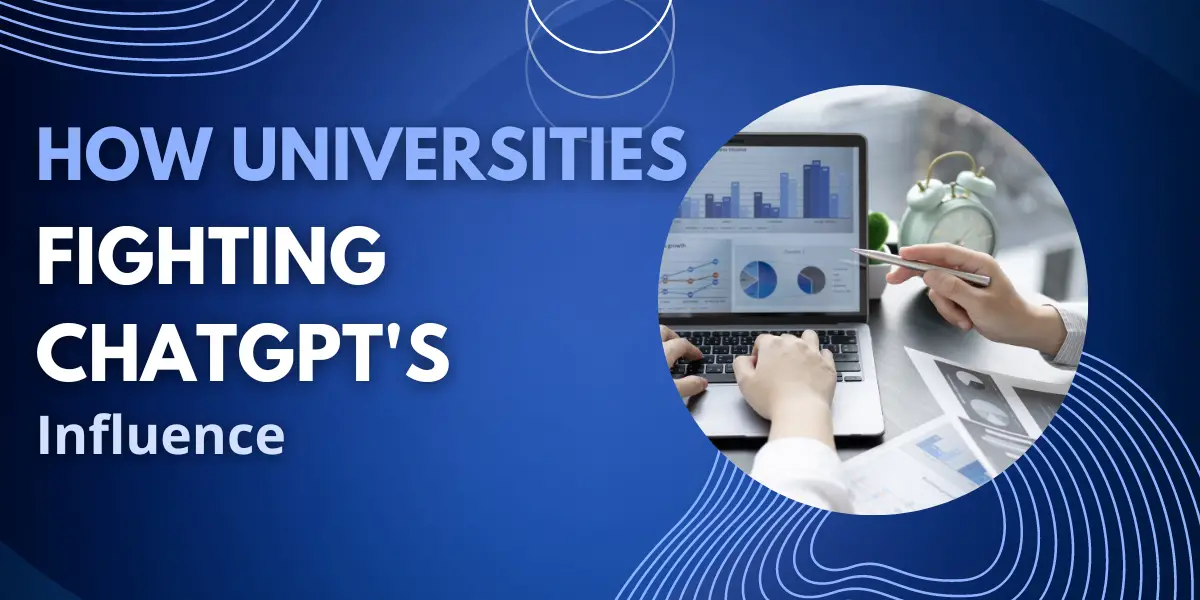How Universities are Fighting ChatGPT's Influence

In an era where technology is seamlessly integrating into every facet of our lives, the academic realm is at a crossroads. The emergence of AI tools, particularly ChatGPT, has sparked a profound debate on the ethics, integrity, and future of education. While AI’s capabilities are undeniably transformative, its unchecked use in academia threatens the very essence of learning.
Table of Contents
ChatGPT: A Marvel of Modern AI
OpenAI’s ChatGPT, with its impressive feats like acing the AP Biology exam and navigating a freshman year at Harvard, is a testament to the leaps AI has made. But beyond these achievements lies a pressing question: At what cost do these advancements come? If a machine can effortlessly surpass human performance in academic tests, what does it mean for genuine human learning?
The Allure and Peril of Instant Knowledge
For students, ChatGPT offers the allure of instant knowledge, a shortcut in an often stressful academic journey. However, this convenience comes at the peril of genuine understanding. When AI-generated answers are at one’s fingertips, the incentive to delve deep, to struggle, and to truly grasp a concept diminishes.
The Academic Integrity Quandary
The rise of ChatGPT has inadvertently spotlighted the fragility of academic integrity. If students turn to AI for assignments and tests, it blurs the line between individual effort and machine-generated content. This not only devalues academic achievements but also raises concerns about the skills and knowledge of future professionals.
Revisiting Traditional Pedagogies
In response to the ChatGPT challenge, educators worldwide are revisiting traditional teaching and evaluation methods. The return to handwritten assignments and oral examinations is not just a nostalgic trip but a strategic move to ensure genuine student engagement and understanding.
Beyond Testing: Rethinking Evaluation
The ChatGPT dilemma forces a reevaluation of the very purpose of testing. Should tests be mere fact-recall exercises, or should they assess deeper analytical and critical thinking skills? Perhaps it’s time to redesign evaluation methods to reflect the latter, ensuring that AI tools can’t undermine the process.
OpenAI's Responsibility and the Broader Implications
The fluctuating usage patterns of ChatGPT, especially its decline during student breaks, hint at its primary user demographic. If students form the bulk of its users, OpenAI faces both an ethical and business conundrum. Ethically, the promotion of a tool that can be misused in academia is questionable. From a business perspective, a tool reliant on a seasonal user base may not be sustainable in the long run.
Envisioning a Synergistic Future
Instead of viewing AI tools like ChatGPT as threats, there’s potential in envisioning a future where they work in synergy with traditional education. AI could be used to supplement learning, offering insights, clarifications, and additional information, rather than replacing genuine student effort.
Conclusion
The intersection of AI and academia is a complex one, laden with ethical, pedagogical, and societal implications. As we stand at this crossroads, the choices made by educators, students, and AI developers will shape the future of education. It’s imperative to ensure that this future values genuine learning and understanding over mere convenience.

